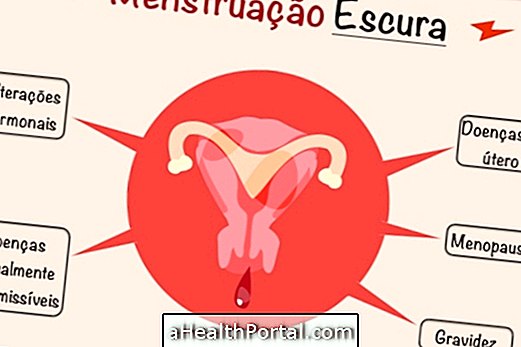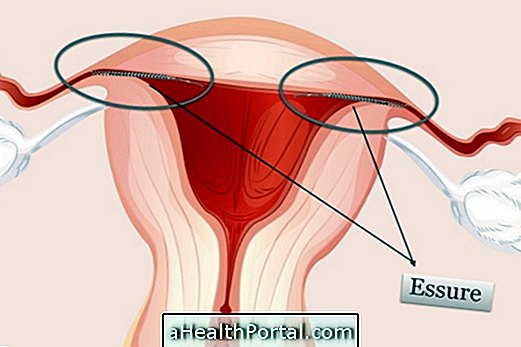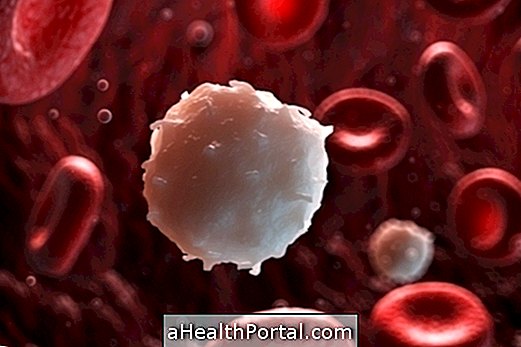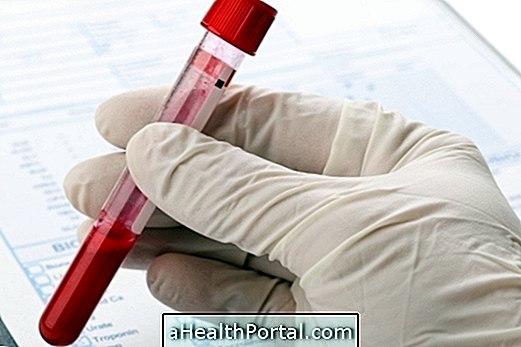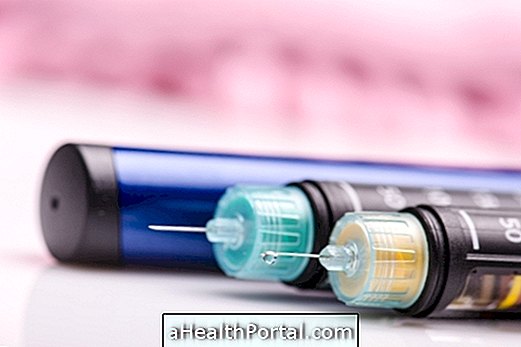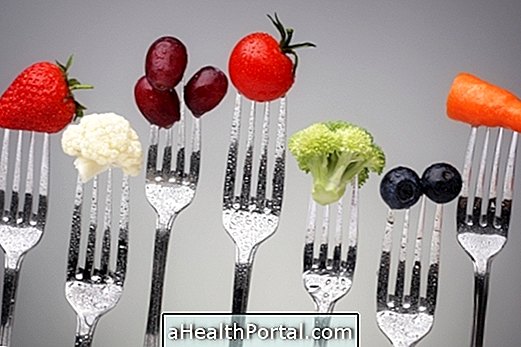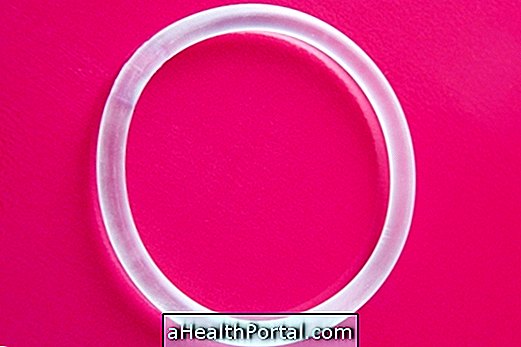Although rare, it is possible to get pregnant when you are menstruating and have an unprotected relationship, especially when you have an irregular menstrual cycle or when the cycle is less than 28 days.
In a regular cycle of 28 or 30 days these chances are almost nil because after the end of the menstrual period there are still about 7 days until ovulation and the sperm survive a maximum of 5 days inside the woman's body, not having contact with the released ovum. In addition, even during fertilization, during menstruation, the uterus is no longer ready to receive the fertilized ovum and, therefore, the chances of becoming pregnant are very low.
However, if unprotected intimate contact has occurred, the best way to confirm that you are pregnant is by taking the pharmacy test, which should be done from the first day of your menstrual period. Learn more about this type of test and how it is done.
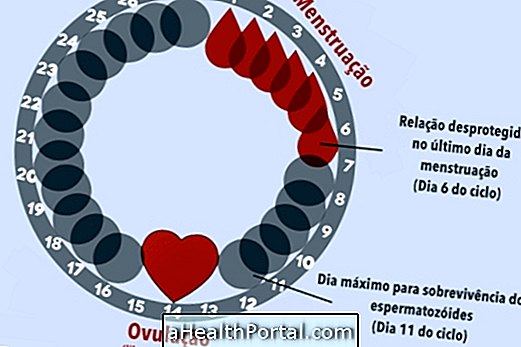
Because it is possible to conceive in a short or irregular cycle
Unlike a regular cycle of 28 or 30 days, ovulation of a shorter or irregular cycle can occur within 5 days after the end of menstruation and therefore there is a greater chance of some spermatozoon surviving, reach the ovum, generating a pregnancy.
So, ideally, women who have a short or irregular cycle should always use a contraceptive method if they are not trying to get pregnant, even during menstruation.
What are the chances of getting pregnant before or after menstruation
The chances of getting pregnant are greater when later the unprotected relationship occurs and, therefore, it is easier to get pregnant after menstruation. This is because the relationship occurs closer to ovulation and thus the sperm can survive long enough to fertilize the ovum.
If intimate contact occurs immediately before the menstrual period, the chances are also almost nil, even lower than what happens when the woman is menstruating.
How to avoid pregnancy
The safest way to avoid an unwanted pregnancy is by using a contraceptive method, the most effective being:
- Male or female condom;
- Contraceptive pill;
- IUD;
- Implant;
- Injectable contraceptive.
The couple should select the method that best suits their needs and maintain their use until they do not want to become pregnant, even during menstruation. See a more complete list of contraceptive methods available and the advantages and disadvantages of each.



